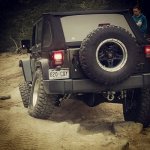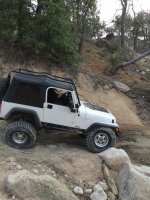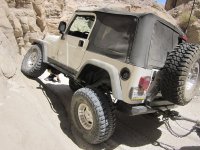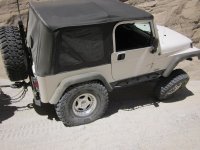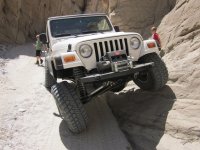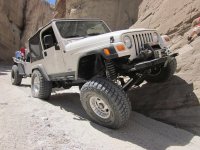jeff_in_rc
New member
I have the Rock Jock Anti-Rock system on my 2004 TJ Rubicon and a friend pointed out in a picture that my axle was not really flexing like it should. He suggested that we flex it connected and disconnected so we did out at Charlie's Place. Found a sloped rock and drove the passenger front up the rock and we marked it, then disconnected one side of the Anti-Rock and went back up and man what a difference. Got further up the rock and the axle drooped at least 18" more than when connected. And I'll be damned if I can find the pics we took!
Anyway has anybody else seen an issue like this? I have always been under the impression that there is NO NEED to disconnect the Anti-Rock, so am I wrong or what?
Thanks for reading.
Anyway has anybody else seen an issue like this? I have always been under the impression that there is NO NEED to disconnect the Anti-Rock, so am I wrong or what?
Thanks for reading.

